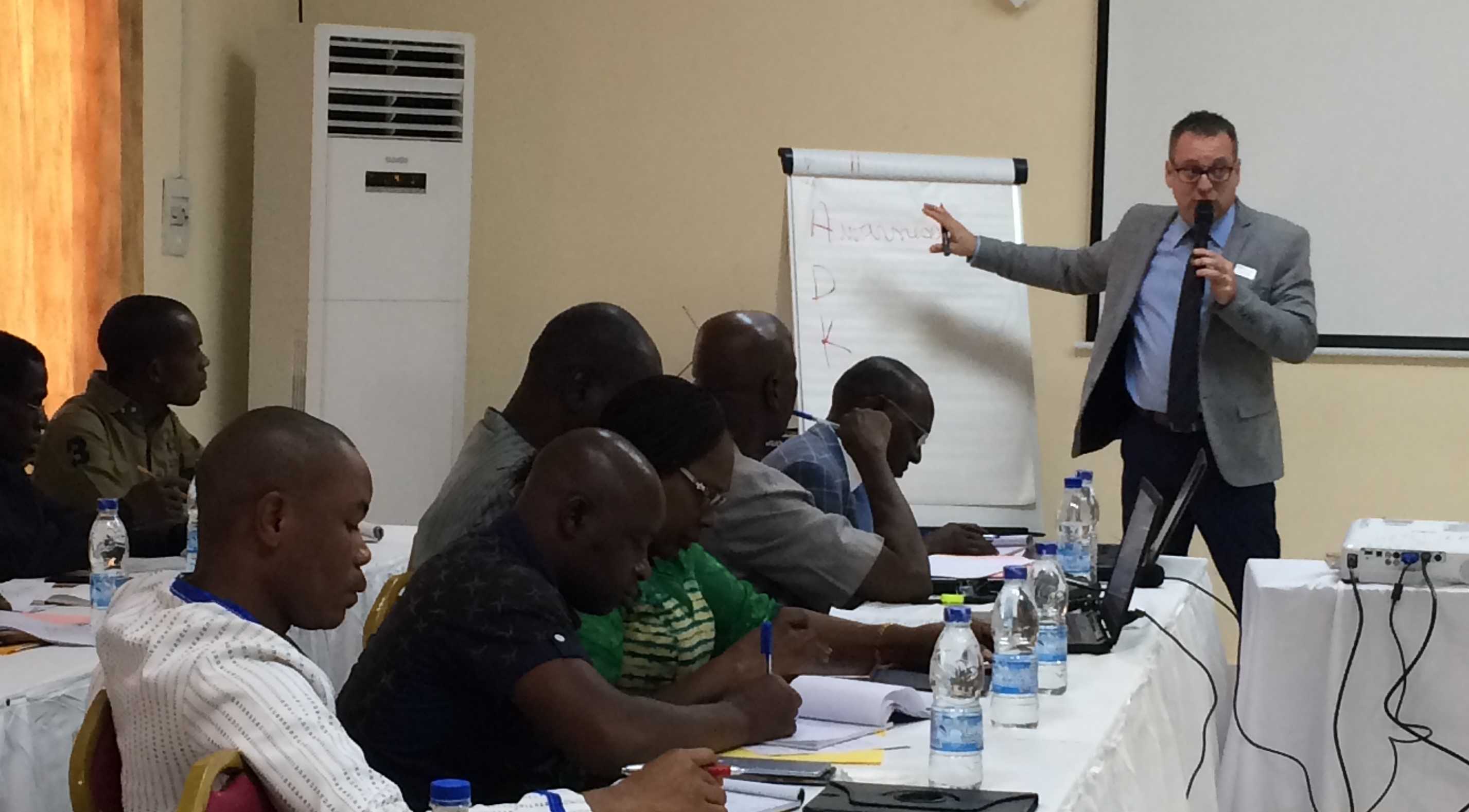
Local level political engagement is a key aspect of FCM’s international and municipal programming. When Canadian elected officials are involved with our programs, they help increase the profile, relevance, and ultimately the success of the delivery of FCM’s programming. In an effort to ensure transparency and accountability, a Governance Representative works with each project as the spokesperson to FCM’s Board of Directors. Governance Representatives also participate as members of the program steering committee, helping to foster dialogue between senior municipal leaders from the seven focus countries in learning from each other, and in providing direction on program implementation.
Daniel Champagne, municipal councillor for the City of Gatineau, is the Governance Representative for FCM.s work in Africa through the Partnerships for Municipal Innovation initiative. He sat down with Carilynn Siemens, Advisor, Outreach and Engagement for FCM Programs, to discuss his work.
Why did you want to get involved with this program?
With increased access to technology, we have never been so close to each other. Therefore, we became the witnesses of the evolution of local governments around the world. With that in mind, I think we need to make sure that we strengthen our relationship with our neighbors, regardless of the distance. This strengthening of relationships allows us to emphasize the importance of the contribution of young women and men to the municipal democratic system, an important change for many international communities. It is for them that I want to help build our communities. Not only for our young Canadians – and for my three daughters - but also for all those young men and women who want to make a difference in their communities around the world. The municipal government being the closest to the citizens, it is responsible for the implementation of that change. It is then to try and influence the international communities that I want to get involved.
Is there anything in your skills or expertise that you think might be a useful contribution to the project?
In addition to being an elected municipal councillor, I have worked for more than 30 years as a Human Resources Manager in the federal government. Having acquired extensive experience in conflict management, including skills in mediation and change management (Prosci model), I was able to see that this is an asset for this initiative. For example, throughout the workshops in Côte d'Ivoire, I was able to use my change management skills. Furthermore, I had the opportunity to use my mediation skills when the discussions took an unexpected turn.
Are there any benefits you expect yourself or your community to gain from your participation in this project?
Personally, I consider myself lucky to have the opportunity to put my skills to good use for a large-scale and profitable project not only for the international communities, but also for the local actors who have the privilege of contributing to the project. Whether traveling abroad or meeting with local partners, I have the chance to share best practices that I report later in my municipality, for its benefit.
What are your initial impressions of the project and its partners?
My first impression of the initiative led me to believe that the primary objective of Canadian municipalities was to propose new ways of governing local communities abroad. Undoubtedly, in Canada, we are running our local governments in a different way, and several international communities need to deepen their philosophy about the place they have for young people and women. Still, my observation is that regardless of our culture, our race or our color, we are closer and closer and we all share the same goals of success. Finally, it is not a question of imposing a way of doing things, but rather of working together on the economic and social reinforcement of local governments.

